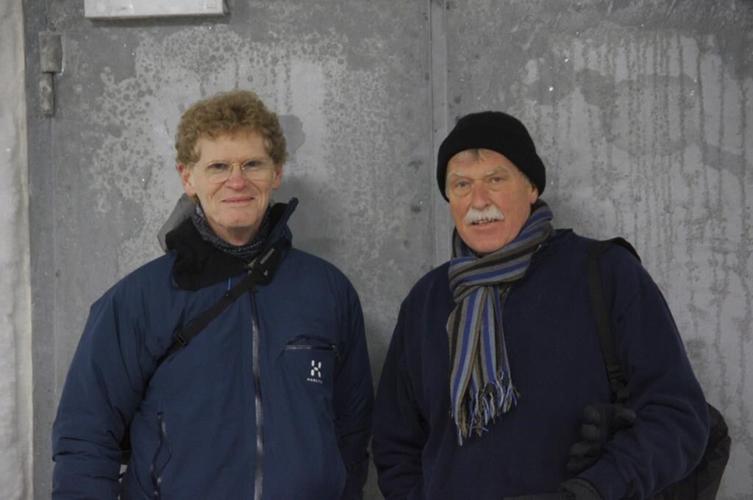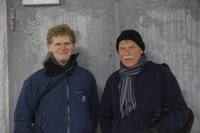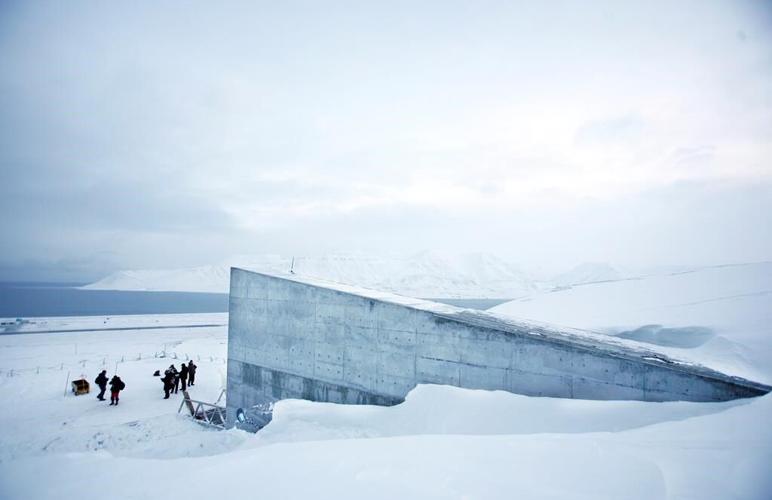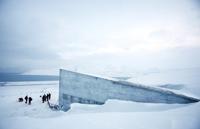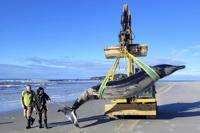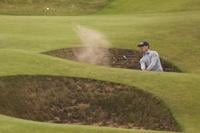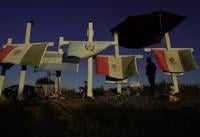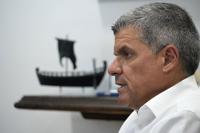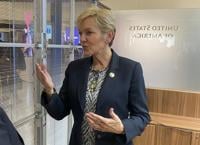DES MOINES, Iowa (AP) — As Cary Fowler and Geoffrey Hawtin began thinking about ways to prevent starvation and protect the world's food supply, they came up with what Fowler called “the craziest idea anybody ever had” — a global seed vault built into the side of an Arctic mountain.
About 20 years ago, Fowler, now the U.S. special envoy for Global Food Security, and Hawtin, an agricultural scientist from the United Kingdom, envisioned the so-called “doomsday vault” as a backup spot for seeds that could be used to breed new crops if existing seed banks were threatened by wars, climate change or other upheaval. On Thursday, officials in Washington announced that Fowler and Hawtin would be named 2024 for their work.
“To a lot of people today, it sounds like a perfectly reasonable thing to do. It’s a valuable natural resource and you want to offer robust protection for it,” he said in an interview from Saudi Arabia. “Fifteen years ago, shipping a lot of seeds to the closest place to the North Pole that you can fly into, putting them inside a mountain — that’s the craziest idea anybody ever had.”
The Svalbard Global Seed Vault on the Norwegian island of Svalbard opened in 2008 and now holds 1.25 million seed samples from nearly every country. The largely concrete structure, built into the side of a mountain, provides genetic protection for over 6,000 varieties of crops and culturally important plants.
Fowler and Hawtin were named the winners of the annual prize at the State Department, where Secretary of State Antony Blinken lauded the men for their “critical role in preserving crop diversity."
They will be awarded the annual prize this fall in Des Moines, Iowa, where the food prize foundation is based, and will split a $500,000 award.
Hundreds of smaller seed banks have existed in other countries for many decades, but Fowler said he was motivated by a concern that climate change would throw agriculture into turmoil, making a plentiful seed supply even more essential.
Hawtin, an executive board member at the Global Crop Diversity Trust, said that there were plenty of existing crop threats, such as insects, diseases and land degradation, as well as political upheaval, but that climate change heightened the need for a secure, backup seed vault. In part, that's because climate change has the potential of making those earlier problems even worse.
“You end up with an entirely new spectrum of pests and diseases under different climate regimes,” Hawtin said in an interview from southwest England. “Climate change is putting a whole lot of extra problems on what has always been significant ones.”
Fowler and Hawtin said they hope their selection as World Food Prize laureates will enable them push for hundreds of millions of dollars in additional funding of seed bank endowments around the world. Maintaining those operations is relatively cheap, especially when considering how essential they are to ensuring a plentiful food supply, but the funding needs continue forever.
“This is really a chance to get that message out and say, look, this relatively small amount of money is our insurance policy, our insurance policy that we're going to be able to feed the world in 50 years,” Hawtin said.
The World Food Prize was founded by Norman Borlaug, who received the Nobel Peace Prize in 1970 for his part in the Green Revolution, which dramatically increased crop yields and reduced the threat of starvation in many countries. The food prize will be awarded at the annual Norman E. Borlaug International Dialogue, held Oct. 29-31 in Des Moines.

